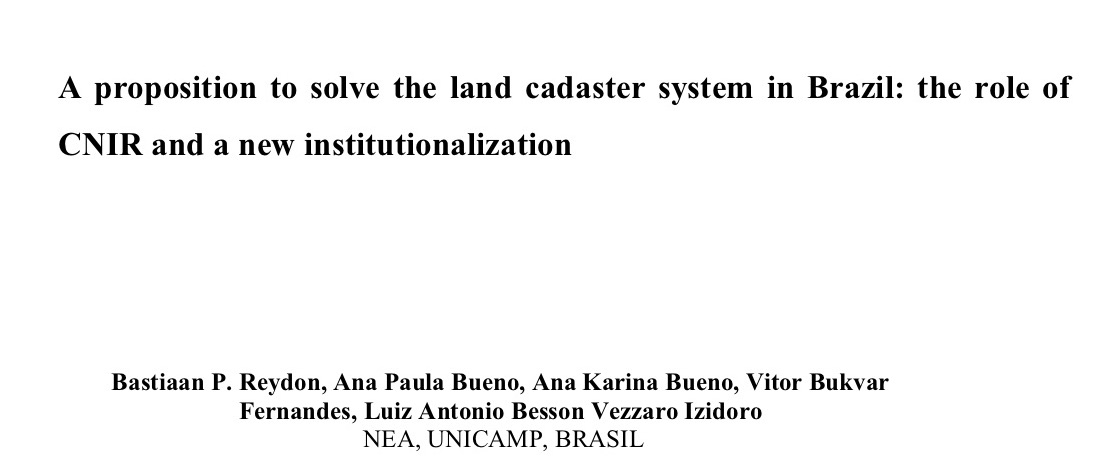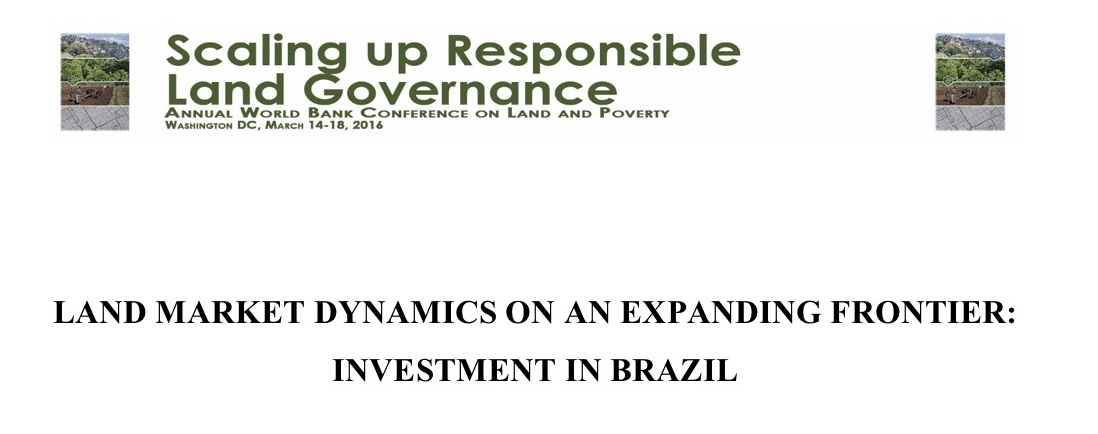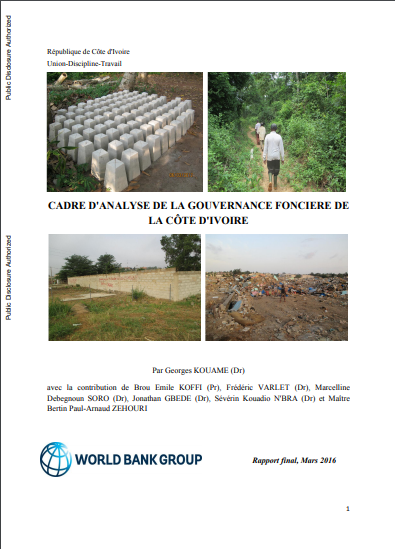The World Bank is a vital source of financial and technical assistance to developing countries around the world. We are not a bank in the ordinary sense but a unique partnership to reduce poverty and support development. The World Bank Group has two ambitious goals: End extreme poverty within a generation and boost shared prosperity.
- To end extreme poverty, the Bank's goal is to decrease the percentage of people living on less than $1.25 a day to no more than 3% by 2030.
- To promote shared prosperity, the goal is to promote income growth of the bottom 40% of the population in each country.
The World Bank Group comprises five institutions managed by their member countries.
The World Bank Group and Land: Working to protect the rights of existing land users and to help secure benefits for smallholder farmers
The World Bank (IBRD and IDA) interacts primarily with governments to increase agricultural productivity, strengthen land tenure policies and improve land governance. More than 90% of the World Bank’s agriculture portfolio focuses on the productivity and access to markets by small holder farmers. Ten percent of our projects focus on the governance of land tenure.
Similarly, investments by the International Finance Corporation (IFC), the World Bank Group’s private sector arm, including those in larger scale enterprises, overwhelmingly support smallholder farmers through improved access to finance, inputs and markets, and as direct suppliers. IFC invests in environmentally and socially sustainable private enterprises in all parts of the value chain (inputs such as irrigation and fertilizers, primary production, processing, transport and storage, traders, and risk management facilities including weather/crop insurance, warehouse financing, etc
For more information, visit the World Bank Group and land and food security (https://www.worldbank.org/en/topic/agriculture/brief/land-and-food-security1
Resources
Displaying 491 - 495 of 4907Paying Taxes 2016
Since the first edition of paying taxes,
and especially following the global financial crisis, the
media, the public, and many policymakers have become
increasingly interested in how international tax systems
operate. Most recently the focus has been the work initiated
by the G20 and carried out by the Organization of Economic
Cooperation and Development (OECD) on base erosion and
profit shifting (BEPS). The BEPS agenda however does not
A proposition to solve the land cadaster system in Brazil: the role of CNIR and a new institutionalization
Brazil has, on the one hand, strong institutions in various areas, improved social situation and, on the other, the rural land situation is still very precarious, with basic unresolved questions, such as for example, knowledge of what is public and private land, due to the absence of cadaster. The legislation moved forward in an attempt to link the cadasters of INCRA, the Internal Revenue Service, with information from the Registry of Real Estate with the enactment of Law No. 10,267 / 2001, creating the National Register of Rural Properties – CNIR.
Immobilized land market caused by lack of secure property rights: case of the cerrado Piauiense
LAND MARKET DYNAMICS ON AN EXPANDING FRONTIER: INVESTMENT IN BRAZIL
In the last years the Brazilian agricultural frontier is expanding towards the cerrado region, more specifically the region called MATOPIBA, comprised of savannah areas of four different states located in the north and northeastern parts of the country. This research paper aims to show a recent pattern of second wave investments in the frontier aimed at inferior quality land.
Cadre d'Analyse de la Gouvernance Foncière en Côte d'Ivoire (French)
Cadre d'Analyse de la Gouvernance Foncière en Côte d'Ivoire (French)










